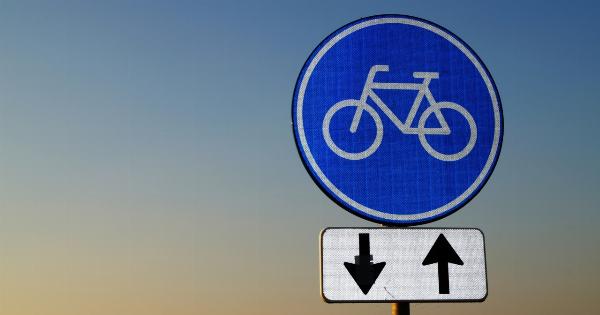Dehydration occurs when your body loses more fluid than it takes in. While mild dehydration can be managed easily, severe dehydration can have serious consequences on your health.
It is important to recognize the signs of severe dehydration in order to seek immediate medical attention and prevent further complications.
Sign 1: Dark urine
One of the most noticeable signs of severe dehydration is dark-colored urine. When you are dehydrated, your kidneys retain as much fluid as possible, resulting in concentrated urine. Dark yellow or amber urine indicates that your body needs more water.
In severe cases of dehydration, your urine may appear orange or even brown.
Sign 2: Dry mouth and throat
When you are severely dehydrated, your body conserves moisture by reducing saliva production. This leads to a dry mouth and throat. You may experience difficulty swallowing or speaking, and your lips may become parched or cracked.
Dry mouth and throat are common signs of moderate to severe dehydration.
Sign 3: Fatigue and dizziness
As your body becomes dehydrated, there is a decrease in blood volume and blood pressure. This can result in feelings of fatigue and dizziness.
Severe dehydration interferes with the normal functioning of your body and can cause weakness and lightheadedness. If you feel excessively tired or dizzy, it may be a sign that you are severely dehydrated.
Sign 4: Decreased urine output
Severe dehydration can lead to a significant decrease in urine output. Your body tries to conserve water by reducing urine production.
If you are experiencing a sudden decrease in the frequency or amount of urine, it may be an indication that you are severely dehydrated. Pay attention to changes in your urine output as it can be a crucial sign to watch for.
Sign 5: Rapid heartbeat and breathing
Dehydration puts stress on your cardiovascular system, causing your heart to work harder to pump blood and oxygen to your organs. This can result in a rapid heartbeat and breathing.
If you notice that your heart is racing or that you are breathing faster than usual without any exertion, it could be a sign of severe dehydration.
When to seek medical attention
If you experience any of the signs mentioned above, it is crucial to seek immediate medical attention. Severe dehydration can lead to serious complications, such as heatstroke, organ failure, and even death.
You should also seek medical help if your symptoms worsen or if you are unable to keep fluids down.
Preventing dehydration
Prevention is always better than cure, especially when it comes to dehydration. Here are some tips to help prevent dehydration:.
1. Drink plenty of fluids
Ensure you consume an adequate amount of water and other fluids throughout the day. It is recommended to drink at least eight glasses of water a day, but individual needs may vary depending on factors such as activity level and climate.
2. Be mindful of your activity level
If you are engaging in strenuous physical activity or spending time outdoors in hot weather, you will need to increase your fluid intake to compensate for the increased sweating and water loss.
Remember to hydrate before, during, and after such activities.
3. Monitor your urine
Pay attention to the color and frequency of your urine. Clear or pale yellow urine indicates that you are well-hydrated, while dark urine suggests that you might need more fluids.
4. Eat hydrating foods
Include hydrating foods in your diet, such as fruits and vegetables with high water content. Watermelon, cucumbers, oranges, and strawberries are excellent choices to help maintain hydration levels.
5. Avoid excessive caffeine and alcohol
Caffeinated and alcoholic beverages can contribute to dehydration. Limit your consumption of these drinks and balance them with an equal amount of water or other hydrating fluids.
Conclusion
Severe dehydration can have severe health implications, but it is preventable and treatable if recognized early.
By staying hydrated and paying attention to the signs discussed above, you can ensure your body gets the fluid it needs to function optimally. Remember, never rely solely on your thirst as an indicator of dehydration. Take proactive steps to hydrate yourself and seek medical attention promptly if you suspect severe dehydration.



























